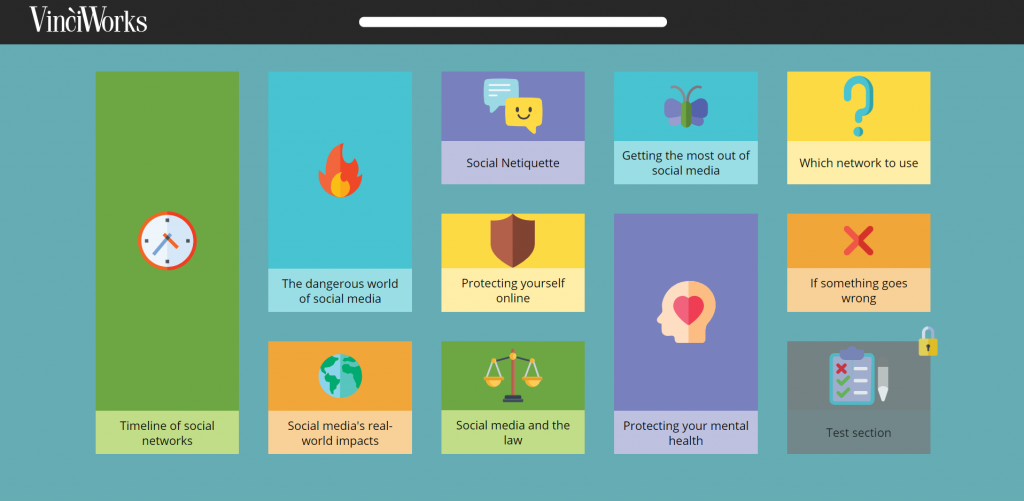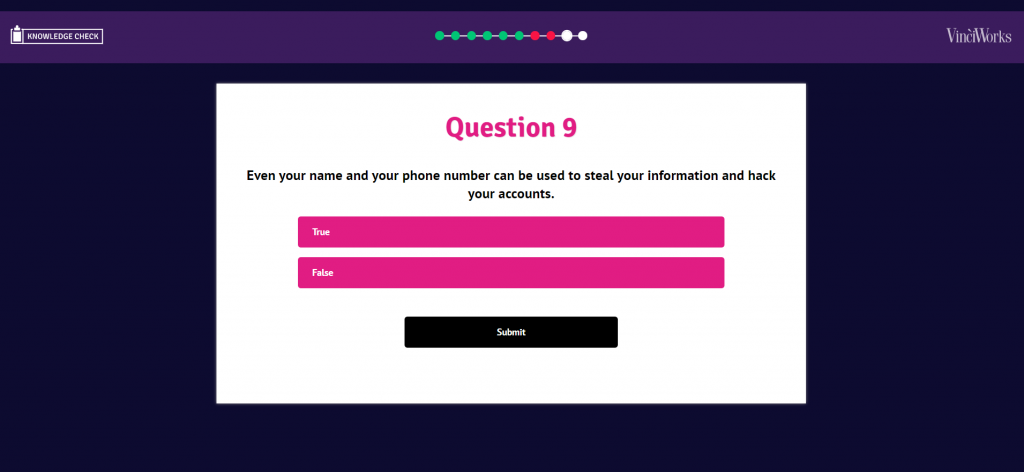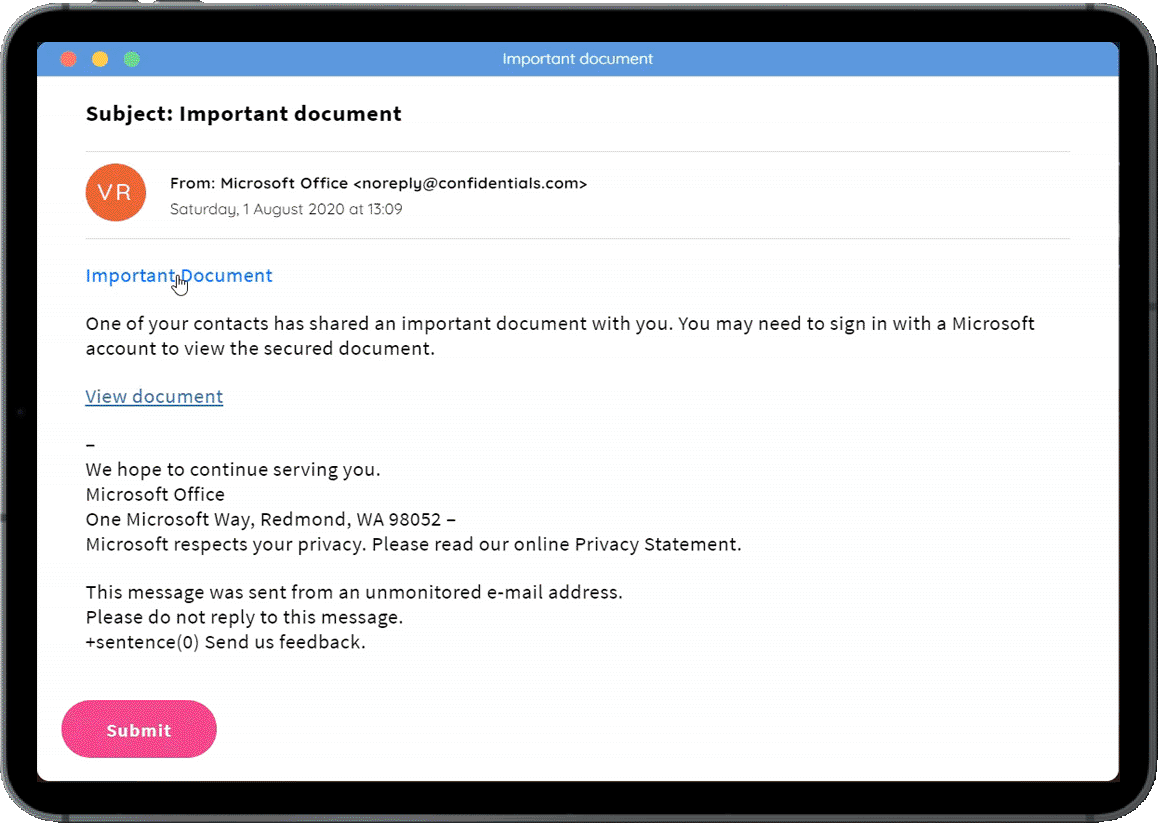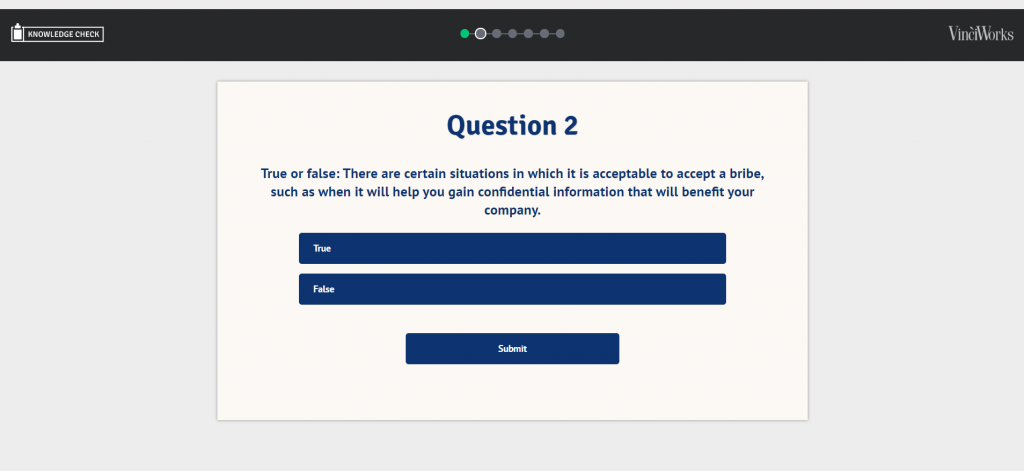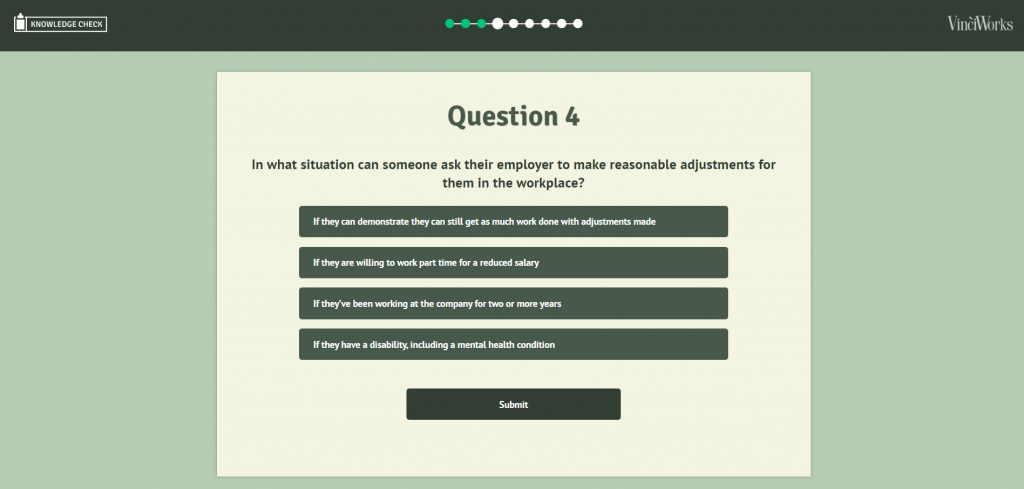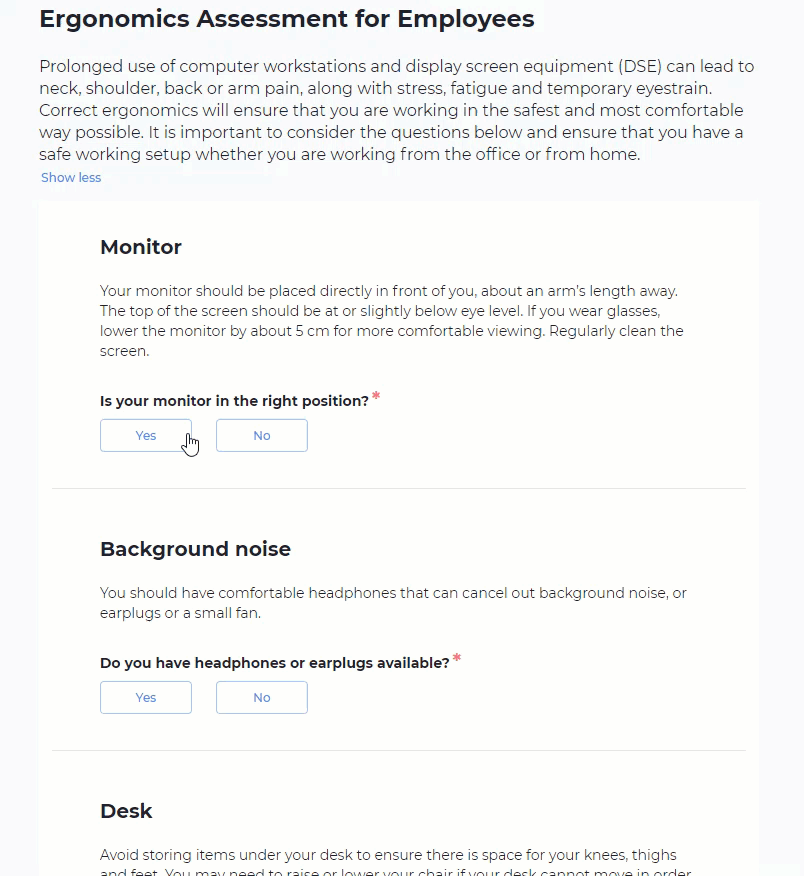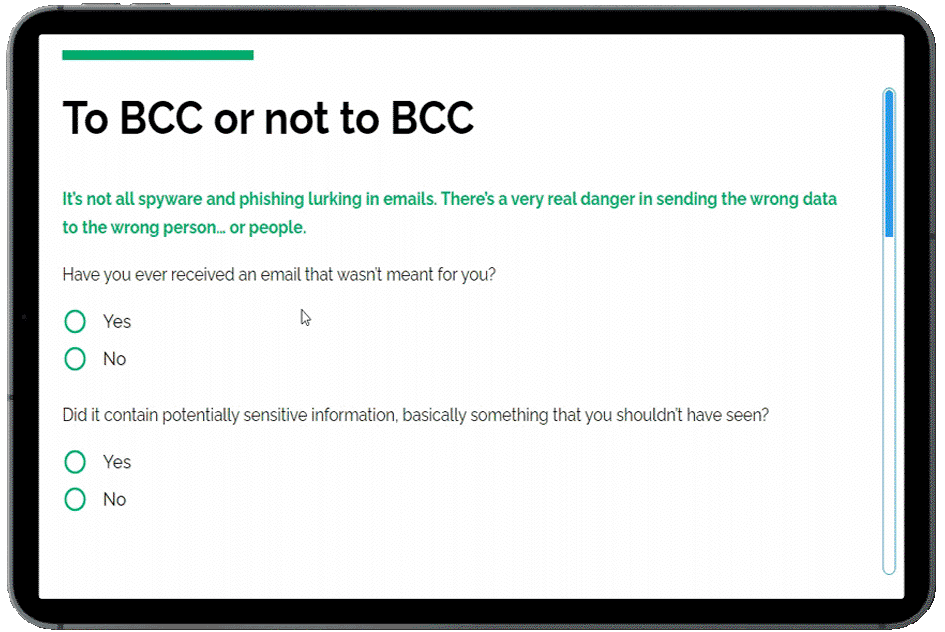
Email comes with risks, whether in personal or professional settings. Email is usually irretrievable, and all too often people don’t think before clicking send or clicking a suspicious link. One wrong click could cripple your company in a matter of minutes. Each time we open our email, we’re diving into a world of risks.
VinciWorks’ new course, Email@Risk, is designed to help users understand what those risks are and how to take action to mitigate the risks and avoid your email address being the source of the next great data breach or embarrassing ‘reply all’.
The course takes a modern, engaging approach to training on this subject with a focus on relevant, clean design, up to date information and guidance, tips and interactive questions and exercises to ensure that staff have the skills they need to recognise and responsibly respond to a wide variety of email-related risks and threats.
Continue reading
